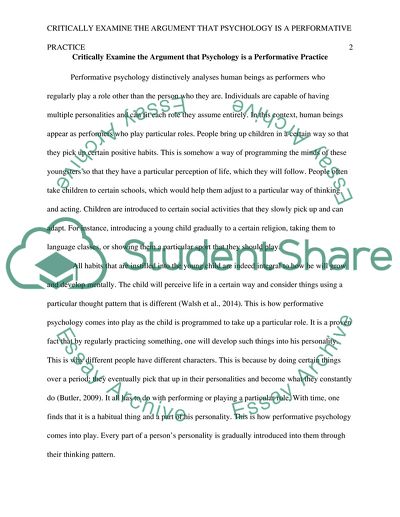Cite this document
(“The soul is the prison of the body (Foucault, 1979). Critically Essay”, n.d.)
The soul is the prison of the body (Foucault, 1979). Critically Essay. Retrieved from https://studentshare.org/miscellaneous/1692986-the-soul-is-the-prison-of-the-body-foucault-1979-critically-examine-the-argument-that-psychology-is-a-performative-practice
The soul is the prison of the body (Foucault, 1979). Critically Essay. Retrieved from https://studentshare.org/miscellaneous/1692986-the-soul-is-the-prison-of-the-body-foucault-1979-critically-examine-the-argument-that-psychology-is-a-performative-practice
(The Soul Is the Prison of the Body (Foucault, 1979). Critically Essay)
The Soul Is the Prison of the Body (Foucault, 1979). Critically Essay. https://studentshare.org/miscellaneous/1692986-the-soul-is-the-prison-of-the-body-foucault-1979-critically-examine-the-argument-that-psychology-is-a-performative-practice.
The Soul Is the Prison of the Body (Foucault, 1979). Critically Essay. https://studentshare.org/miscellaneous/1692986-the-soul-is-the-prison-of-the-body-foucault-1979-critically-examine-the-argument-that-psychology-is-a-performative-practice.
“The Soul Is the Prison of the Body (Foucault, 1979). Critically Essay”, n.d. https://studentshare.org/miscellaneous/1692986-the-soul-is-the-prison-of-the-body-foucault-1979-critically-examine-the-argument-that-psychology-is-a-performative-practice.


